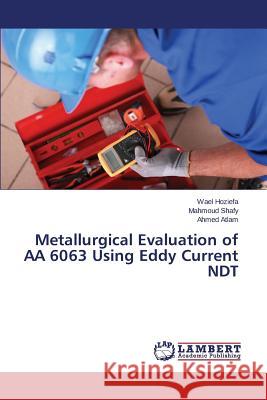Metallurgical Evaluation of AA 6063 Using Eddy Current NDT » książka
Metallurgical Evaluation of AA 6063 Using Eddy Current NDT
ISBN-13: 9783659775932 / Angielski / Miękka / 2015 / 112 str.
A lot of progress is made in the last decade concerning the theoretical and practical aspects of Non-Destructive Testing. The electrical conductivity of aluminum products can be measured after thermal processing to verify that the correct metallurgical structure is present. Thermal processing of aluminum affects the metallurgical structure of the material, which in turn affects the electrical conductivity. The use of a particular Non-Destructive Inspection (NDI) method is highly dependent on the type of structure being inspected, structural material, desired accuracy, the size of the flaw to be inspected, type of damage, time available, and the labor skill. For materials such as aluminum, eddy current electrical conductivity measurements are often used to verify material characteristics. The electrical conductivity of aluminum products can be measured after thermal processing to verify that the correct metallurgical structure is present. Eddy current testing can be applied to a wide range of industrial applications. The most common areas of application are crack detection, heat treatment verification and verification of certain test piece/assembly features.
A lot of progress is made in the last decade concerning the theoretical and practical aspects of Non-Destructive Testing. The electrical conductivity of aluminum products can be measured after thermal processing to verify that the correct metallurgical structure is present. Thermal processing of aluminum affects the metallurgical structure of the material, which in turn affects the electrical conductivity. The use of a particular Non-Destructive Inspection (NDI) method is highly dependent on the type of structure being inspected, structural material, desired accuracy, the size of the flaw to be inspected, type of damage, time available, and the labor skill. For materials such as aluminum, eddy current electrical conductivity measurements are often used to verify material characteristics. The electrical conductivity of aluminum products can be measured after thermal processing to verify that the correct metallurgical structure is present. Eddy current testing can be applied to a wide range of industrial applications. The most common areas of application are crack detection, heat treatment verification and verification of certain test piece/assembly features.











